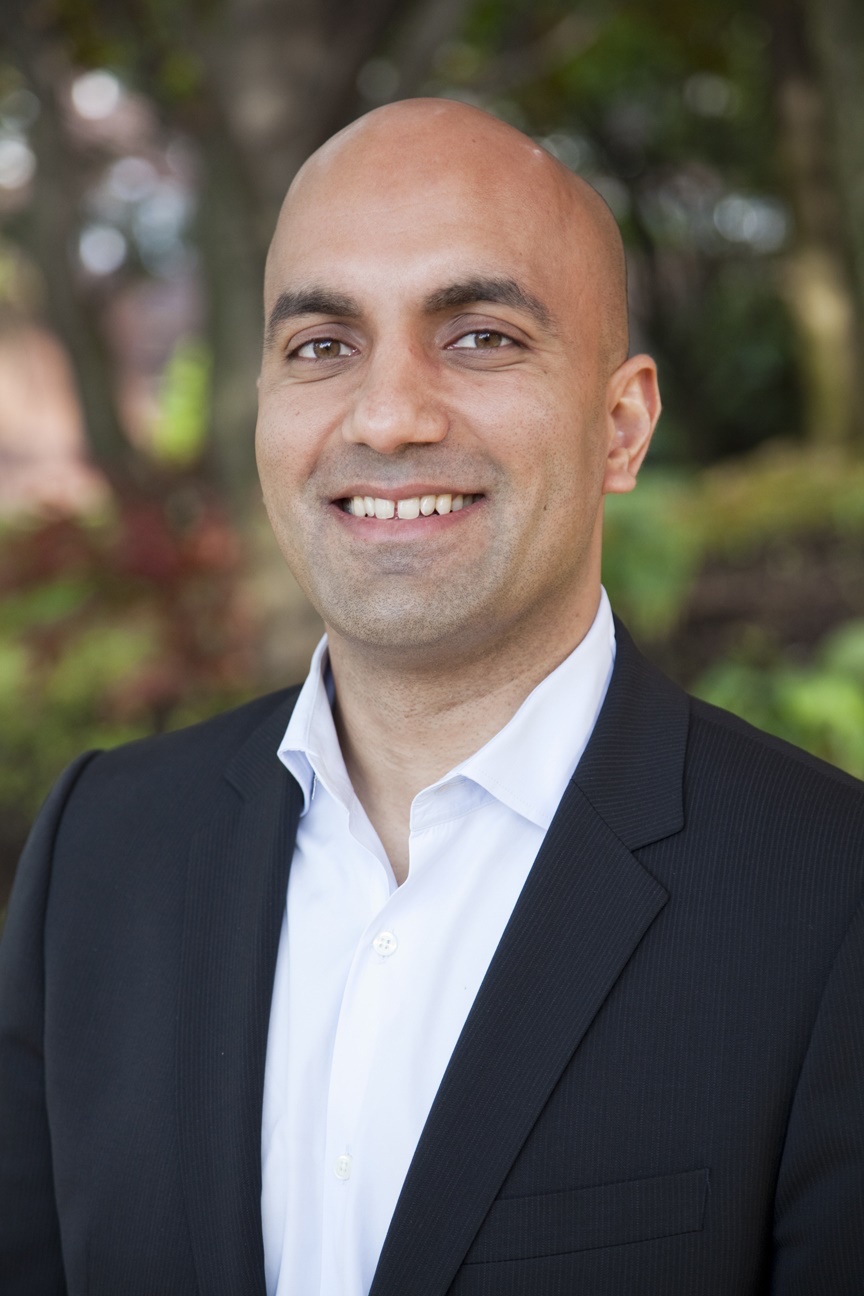Necessary tensions: resisting the allure of a pandemic quick fix
False trade-offs and quick fixes may be appealing during times of fear and uncertainty – but we need to allow for and even embrace the messy reality of multiple approaches if we're to solve today's biggest problems, writes the CEO and co-founder of the Global Impact Investing Network.
 Looking back now on a full year of pandemic life, we see how the human mind so naturally grasps for quick fixes in times of fear and uncertainty.
Looking back now on a full year of pandemic life, we see how the human mind so naturally grasps for quick fixes in times of fear and uncertainty.
And there has been plenty of fear and uncertainty to go around.
We saw the quick fix instinct among those who dismissed the virus before fully understanding it. We saw it from those who promised “two weeks to stop the spread”. And if you are like me, you even saw it in yourself: that nagging hope that a fast vaccine rollout might solve all that ails us.
But we cannot unsee what this past year has revealed. There will be no miracle cure, no silver bullet for the economic and social recovery ahead.
The truth is messier. To truly address the underlying problems exposed by the pandemic, we need to tackle our systemic gaps from more than one direction. Single point, quick fix solutions are insufficient for problems this big and complex.
This means that approaches which might seem, superficially, at odds will work together to address different sides of the same, deep-seated social and economic problems. These necessary tensions will be a feature, not a flaw, of our recovery – guiding us into an inclusive, sustainable ‘next normal’.
Top-down, institutional approaches – or local, community-driven solutions?
One of these most debated tensions centres on whether the troubling gaps in our social fabric are best addressed by top-down, institutional approaches or in local, community-driven solutions. It is essentially a debate about ‘the grassroots’ versus ‘the grass tops’.
The truth is, we urgently need them both.
More than ever, our world requires the scale of its most robust global institutions: the worldwide connectivity of the United Nations, the economic cooperation of the G20, and the policy-making power of federal governments. Large companies and big asset owners are also in this camp; their power to generate social and environmental change by allocating capital differently is almost unimaginable. Our world requires real vision from leaders who influence lots of resources.
And yet, they alone will not be enough. History proves that small groups of committed individuals can have deep impact by shining a human light into the cracks of a broken system. We see those impacts in regenerative agriculture that is sprouting even around big cities, in business models based on community or employee ownership, and in labour movements that give workers more voice and more power. The examples are numerous.
This type of organic, self-organising impact may be small now, but it has a tangible impact on human lives and on our environment. Operating in tandem with institutional-scale solutions that are more responsive to public needs, this approach will be vital.
Short-term urgency – or long-term systems change?
Another necessary and ongoing tension will be the balance between short-term urgency and long-term systems change.
At this point, the need to act promptly is beyond dispute. From the vast inequality exposed by Covid to the ever-more-frequent disasters caused by our climate emergency, the signals are glaring. Crisis does this to us: pulling us powerfully into the present and focusing us on immediate needs. Swiftness of action is essential.
But here again, a unidirectional solution is insufficient. As our society works toward short-term remedies, our eye must also be on systemic, structural change.
A unidirectional solution is insufficient. As our society works toward short-term remedies, our eye must also be on systemic, structural change
We need to be investing now in resilience and innovation that may not realise full potential for years. This will mean fundamental changes to our global energy systems, our food systems and our approaches to housing and employment, among many more. It will mean an elemental shift in the way business relates to our planet and its people. It will mean hard work, with limited short-term payoff, but it is essential.
Concentrate on the data – or change the narrative?
Increasingly, tensions are surfacing between those who seek to address global challenges with data-infused technical solutions and those who gravitate toward changing culture as the path toward that same goal.
In this era of declining trust, institutions of all types are being forced to demonstrate results with concrete data. This increasing reliance on technical approaches has important benefits. Most notably, such approaches provide incontrovertible proof that they are actually driving progress on the big, messy challenges – like inequality and the climate crisis – that they claim to address.
For this reason, it is tempting to imagine that technical, data-focused solutions will be robust enough to generate the systemic change we need. But data alone cannot overcome dogma and ideology. We also need a shift in narratives.
We must change the way that people see their relationships to one another and to the planet. We must tell a new story about the role of business and investment in our world. We must fundamentally evolve the way that people connect their lives to the broader society in which we live. No mountain of data could ever do that.
Honesty – or optimism?
Perhaps the most personal of these tensions lies in our own attitudes about crisis: should we focus on being brutally honest about our precarious situation? Or should we strive to maintain uplifting optimism?
Again, I am convinced that this moment requires both.
Our world cannot move forward without being honest about the very real implications of our problems: the vastness of social inequity that is leaving behind entire generations of the world’s populations; the global pervasiveness of racism that daily endangers countless lives; the urgency of a climate crisis that threatens our existence on this planet. This brutal honesty feels dark and discouraging, but our basic intuition recognises its necessity in forging progress that is durable.
We cannot move forward without being honest about the very real implications of our problems... and yet, an equally basic intuition calls us toward hope
And yet, an equally basic intuition calls us toward hope, especially when we account for the fervent action of millions pressing for change. Environmentalist and entrepreneur Paul Hawken summed up this duality perfectly: “If you look at the science about what is happening on earth and aren't pessimistic, you don't understand the data. But if you meet the people who are working to restore this earth and the lives of the poor, and you aren't optimistic, you haven't got a pulse.”
Human capacity for innovation is limitless, and I am optimistic that this spirit can guide us toward the systemic changes we need.
Necessary tensions
So, as we acknowledge the one-year anniversary of the pandemic, I urge you to reject the false trade-offs and quick fixes that are so appealing during times of fear and uncertainty.
All-or-nothing mindsets keep us rigid when we are better served by stretching our thinking in new ways.
The months ahead will be characterised by tension as we push toward the goal of systemic change. Many of those tensions will be healthy and necessary. Indeed, they may be evidence of change-makers tackling our world’s biggest problems from different directions: not with quick fixes, but with the diverse approaches that can ultimately connect in driving toward a unified outcome.
As we press forward, we must all be working to build the bridges and foster the integration that will allow coherent progress toward the inclusive, sustainable “normal” that must come next.
- Amit Bouri is CEO and co-founder of the Global Impact Investing Network.
Thanks for reading Pioneers Post. As an entrepreneur or investor yourself, you'll know that producing quality work doesn't come free. We rely on our subscribers to sustain our journalism – so if you think it's worth having an independent, specialist media platform that covers social enterprise stories, please consider subscribing. You'll also be buying social: Pioneers Post is a social enterprise itself, reinvesting all our profits into helping you do good business, better.




